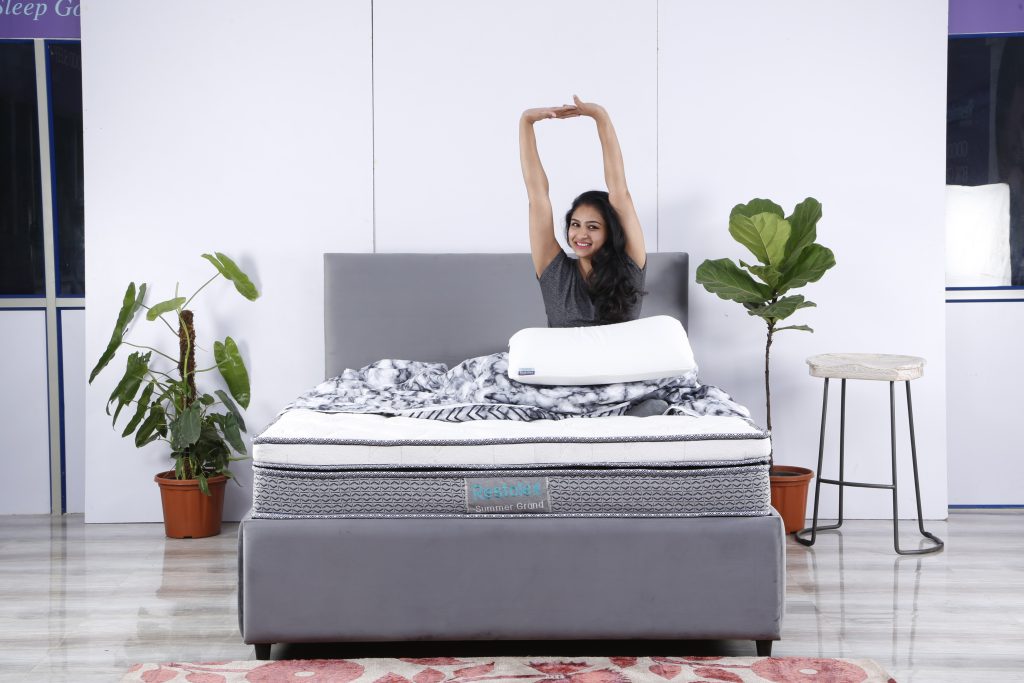The Ultimate Guide to Sleep Hygiene: Small Changes for Big Results
Sleep hygiene refers to the practices and habits that can help you enjoy better sleep. While many people struggle with sleep issues, making small changes to your daily routine can have a significant impact on the quality of your rest. In this guide, we’ll explore the key components of sleep hygiene and offer actionable tips to improve your sleep quality for big results.

Why Is Sleep Hygiene Important?
Good sleep hygiene promotes consistent, uninterrupted, and restful sleep. When you maintain proper sleep habits, you’ll:
- Fall asleep faster
- Sleep more deeply
- Wake up feeling refreshed
- Improve your mental and physical health
On the flip side, poor sleep hygiene can lead to insomnia, fragmented sleep, and chronic fatigue, impacting your productivity and well-being.
1. Establish a Consistent Sleep Schedule
Your body operates on a circadian rhythm, which is your internal clock that regulates your sleep-wake cycle. Maintaining a consistent sleep schedule by going to bed and waking up at the same time each day—even on weekends—helps stabilize this rhythm, making it easier to fall asleep and wake up naturally.
Tip:
- Set a regular bedtime: Aim to get at least 7–9 hours of sleep each night, and set a consistent bedtime to support this goal.
- Limit naps: If you’re napping during the day, keep it under 30 minutes to avoid disrupting your nighttime sleep.
2. Create a Relaxing Bedtime Routine
A calming bedtime routine signals to your brain that it’s time to unwind and sleep. By engaging in relaxing activities before bed, you can ease the transition from wakefulness to sleep.
Tip:
- Wind down with a book or meditation: Avoid screens before bed, as the blue light emitted by devices can interfere with your ability to fall asleep. Instead, read a book or practice deep breathing exercises.
- Try a warm bath: Taking a warm bath or shower can relax your muscles and promote sleepiness.
3. Optimize Your Sleep Environment
Your bedroom should be a sanctuary for rest. If it’s noisy, cluttered, or uncomfortable, it could be hindering your ability to sleep well.
Tip:
- Keep your bedroom cool: A temperature between 60–67°F (15–19°C) is ideal for sleeping.
- Invest in comfortable bedding: A high-quality mattress and pillows from Restolex can significantly improve sleep comfort. Ensure your bedding is supportive and suits your sleep style.
- Block out light: Use blackout curtains or an eye mask to create a dark sleep environment. Dimming the lights in the evening helps signal to your brain that it’s time for bed.
- Reduce noise: Consider using white noise machines or earplugs to block out disruptive sounds.
4. Be Mindful of Your Diet and Hydration
What you eat and drink before bed can greatly impact your sleep quality. Caffeine and heavy meals close to bedtime can make it harder to fall asleep and stay asleep.
Tip:
- Limit caffeine: Avoid caffeine, such as coffee, tea, and chocolate, in the late afternoon and evening.
- Watch your alcohol intake: While alcohol may make you feel sleepy initially, it can lead to fragmented sleep and wakefulness later in the night.
- Avoid heavy meals: Large, rich meals before bed can cause discomfort, indigestion, or heartburn, making it harder to fall asleep.
- Stay hydrated: Drink water throughout the day, but reduce fluid intake in the evening to prevent waking up for bathroom breaks.
5. Exercise Regularly
Physical activity can help regulate your sleep-wake cycle, reduce stress, and improve sleep quality. However, the timing of your workout matters.
Tip:
- Exercise early: Aim to complete your workout at least 3–4 hours before bedtime, as exercising too close to bedtime can increase your energy levels and make it harder to fall asleep.
- Incorporate calming exercises: Gentle yoga or stretching can help you relax and prepare for sleep.
6. Limit Screen Time Before Bed
Exposure to blue light from phones, tablets, and computers can suppress the production of melatonin, the hormone that regulates sleep.
Tip:
- Turn off screens 30 minutes before bed: Reducing screen exposure before bed can improve your ability to fall asleep and achieve deeper sleep.
- Use blue light filters: If you must use devices before bed, consider using blue light blocking glasses or apps that reduce blue light emissions.
7. Listen to Your Body
Your body knows when it’s tired, so listen to the signals it sends. Forcing yourself to stay awake or go to bed too early can create stress around sleep, making it harder to relax.
Tip:
- Go to bed when you’re sleepy: If you’re not tired, don’t force yourself to go to bed. Engage in a calming activity until you feel ready to sleep.
Conclusion
Improving your sleep hygiene doesn’t require drastic changes—small adjustments can lead to big results in your sleep quality. By establishing a consistent routine, optimizing your sleep environment, and managing stress, you can enjoy more restful nights and energized mornings.
Remember, a high-quality mattress plays a crucial role in your sleep hygiene. At Restolex, we offer mattresses designed to support healthy, restorative sleep, no matter your preferences or sleep style. Combine the right sleep habits with the right mattress, and you’ll be on your way to better sleep in no time.
Sleep well, live well!
Newsletter Sign Up
Join our community to receive exclusive updates, sleep tips, and special offers directly in your inbox. Stay informed and be the first to know about our latest products and promotions.

Contact Us
- 9/1, Ashokapuram, Industrial Suburb, Yeshwanthpur, Bengaluru-560022, India
-
care@restolex.com
Orders@restolex.com
Support@restolex.com -
+91-8750054466
+91-8123018558
